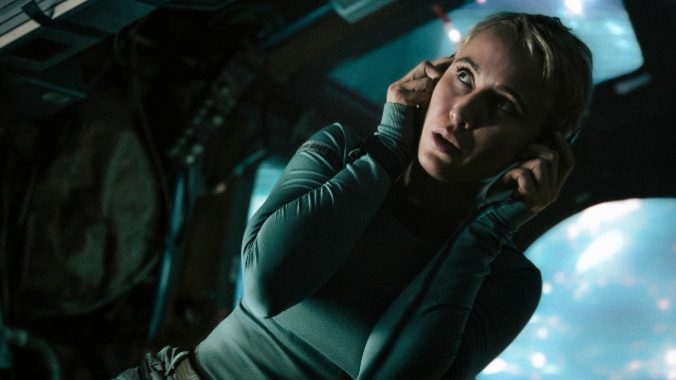Netflix’s The Signal Is a Decent Mystery-Thriller That Doesn’t Fully Live Up to Its Cosmic Aspirations
Photo Courtesy of Netflix
There’s no shortage of stories that speculate about what may lie in the stars, and for good reason. While we’ve cracked plenty of enigmas about our own planet, one of the biggest remaining questions is what awaits in the infinitely vast reaches of space, a curiosity that has given way to an entire sci-fi sub-genre about first contact and what happens when the unknown finally comes to our door. Unsurprisingly, there’s a wide range of opinions on how this would go, ranging from cynical (alien invasions) to more optimistic (shriveled-up little raisin-looking guys who just want to hang out), but most of these tales are ultimately about whether these beings would reflect our best impulses, our worst, or something else entirely.
The Signal, a German-produced miniseries on Netflix, is another story about first contact. More specifically, it’s about people worrying about what kind of guests they’ll be receiving from deep space. Over its short four-episode runtime, it delivers conspiracy-laden thrills and builds out relatively affecting relationships between the family at the center of this tale, but unfortunately, the answers to its big questions end up feeling anticlimactic.
We follow Paula (Peri Baumeister), Sven (Florian David Fitz), and their daughter Charlie (Yuna Bennett), a family eager to be reunited after Paula’s tenure on the International Space Station comes to a close. But something isn’t quite right. After landing back on Earth, Paula leaves Sven a cryptic remark about how “something happened up there,” which we eventually learn refers to a strange message she heard while in orbit. Soon after, everyone on Paula’s flight back to Germany goes missing, forcing Sven and Charlie to piece together a mystery with extraterrestrial implications.
The series gets off to a strong start, with a first episode that expresses the visceral emotions caused by this plane that went dark over the Atlantic. Specific details sell this nightmare scenario—a woman having a panic attack in a bathroom, the missing passengers’ families waiting together in a nearby hotel as each phone call from a potential survivor is received with bated breath, the conference where the airline breaks the horrible truth of what’s happened, resulting in an eruption of grief and anger. It’s all the more painful because the family connections between our central characters are well-defined enough to make this apparent loss feel cutting.
We see the bond shared by Sven, a jaded history teacher, and his precocious daughter, Charlie, who reflects her mom’s optimism and love of space travel. There is a great deal of warmth in their daily routines, many of which relate to the fact that Charlie is hard of hearing, and the two affectionately communicate in sign as they get ready for the day. However, their separation from Paula proves a point of contention that brings out the worst in Sven, as he waffles between denial and honesty with his daughter. Buried marital woes regarding his wife’s line of work and a big secret resurface as the public is left in a state of outrage over her seeming involvement in the flight going missing. Fitz and Bennett’s performances help convey enough moments of relatable familial tensions and care to make us hope this father-daughter duo comes out on the other side, a prospect that becomes dicier as we learn the full breadth of the plot they’ve been sucked into.
-

-

-

-

-

-

-

-

-

-

-

-

-

-

-

-

-

-

-

-

-

-

-

-

-

-

-

-

-

-

-

-

-

-

-

-

-

-

-

-








































